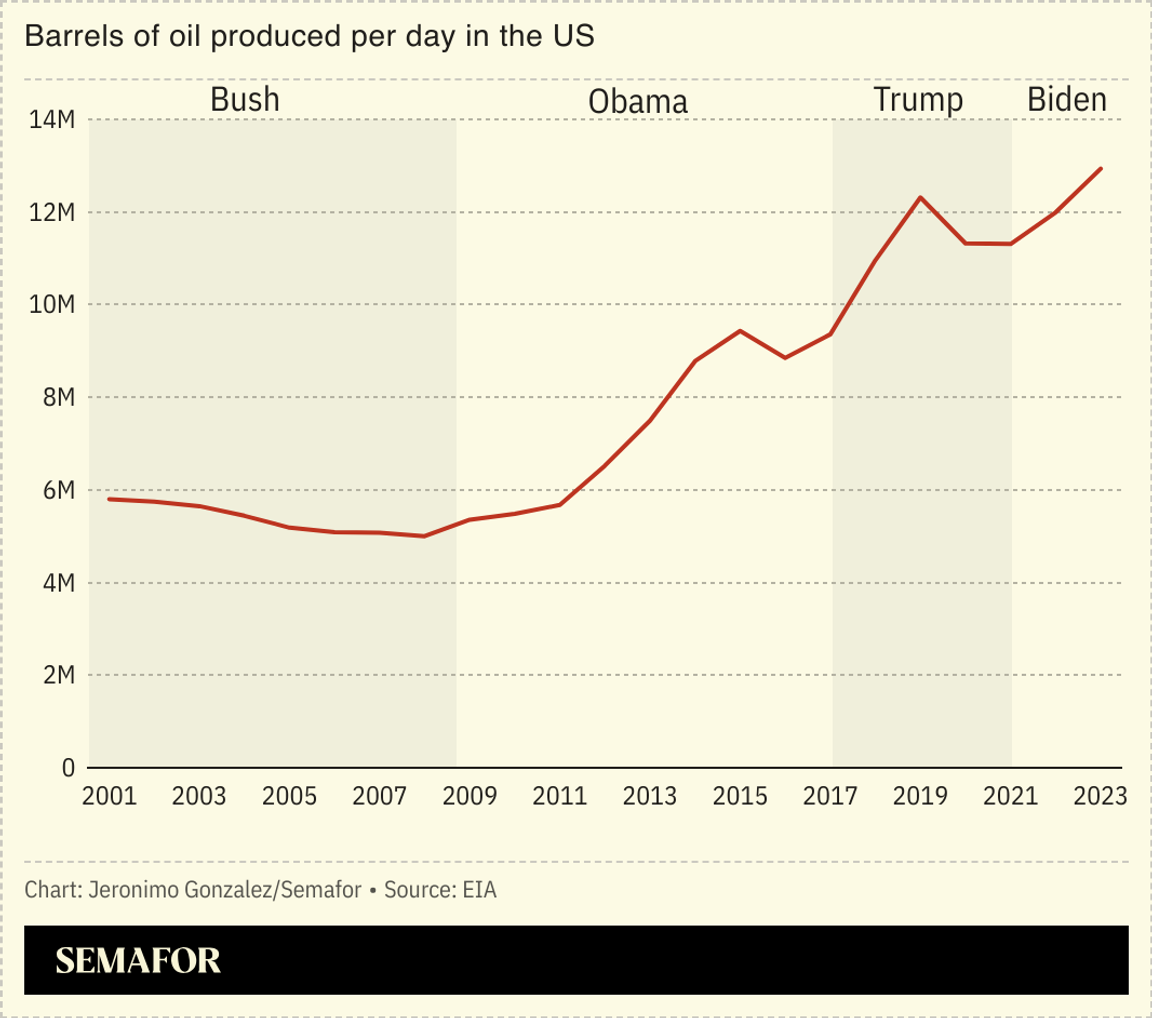 Fossil fuel companies are changing their demands of Donald Trump, underscoring the growing political impact of the energy transition. Oil and gas executives have reportedly urged the former US president to maintain the Inflation Reduction Act, President Joe Biden’s signature climate law, and many of Trump’s allies have benefited financially from the law’s clean-tech subsidies, Reuters noted. This week, the CEO of French oil giant Total cautioned that cutting climate regulations risked a backlash against the fossil fuel sector, telling the FT he was “not in favor of the wild west.” Globally, cooling growth in oil demand undermines Trump’s desire to expand domestic drilling, with shareholders asking companies to instead return profits to investors. — For more on the politics of the energy transition, subscribe to Semafor’s Net Zero newsletter. Sign up here. |